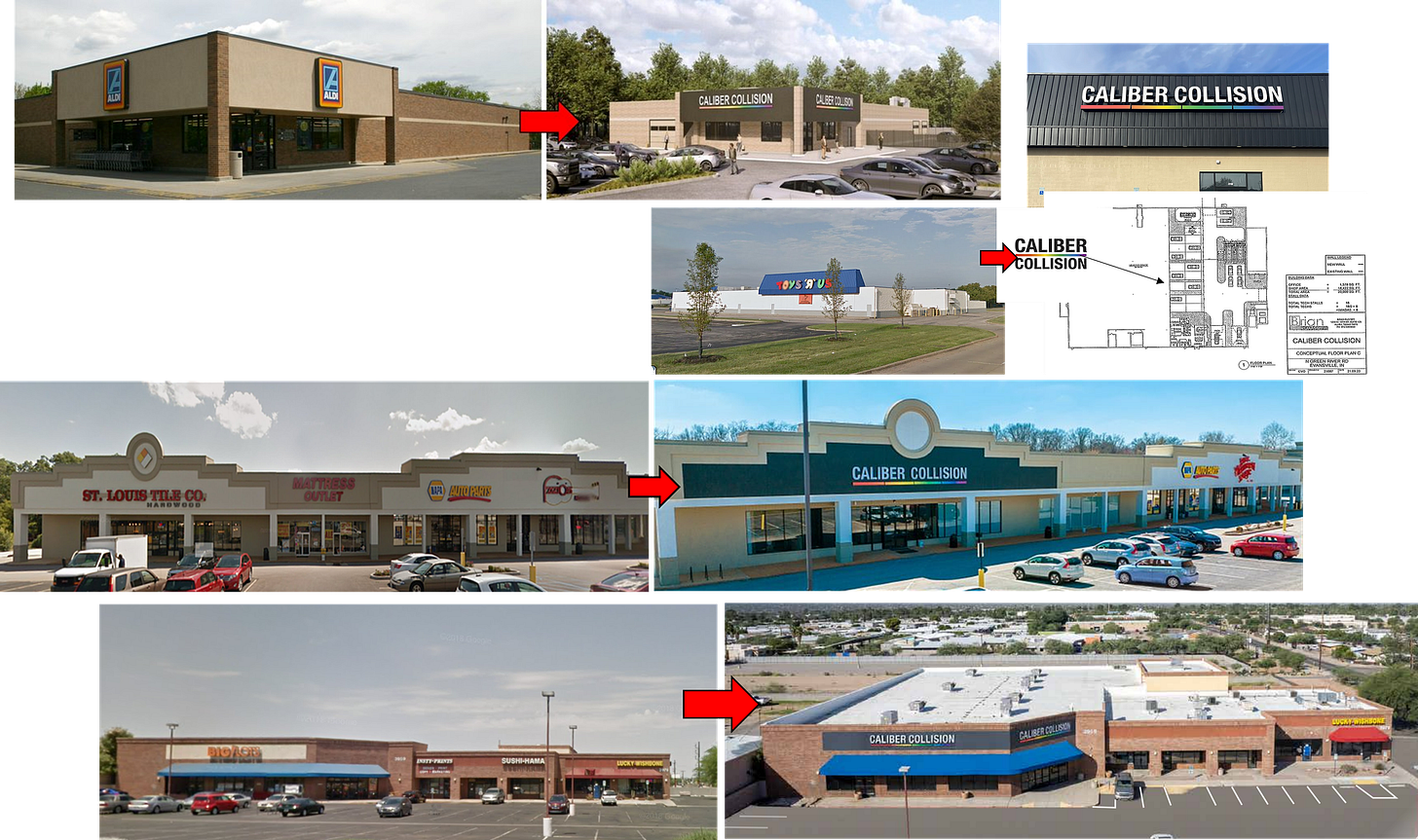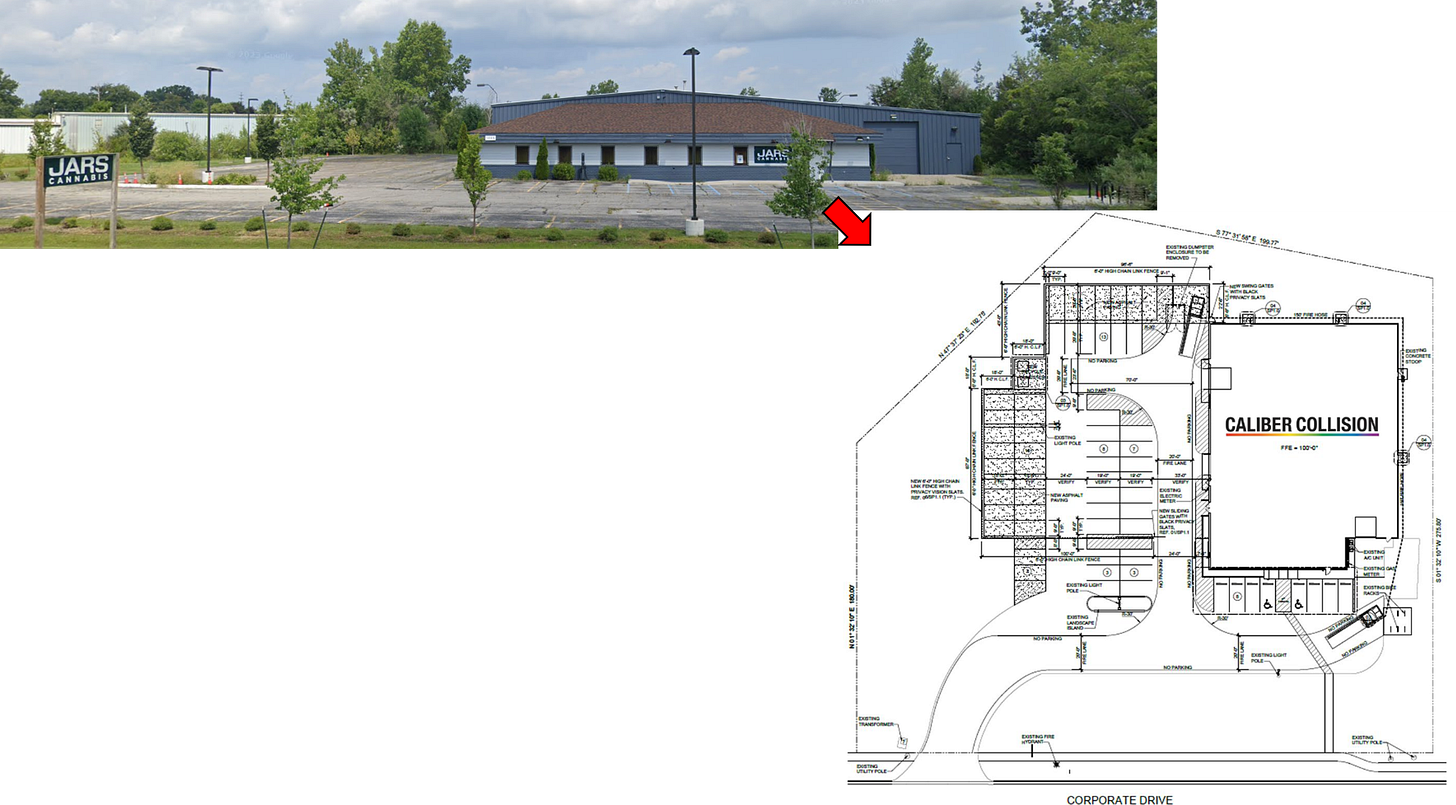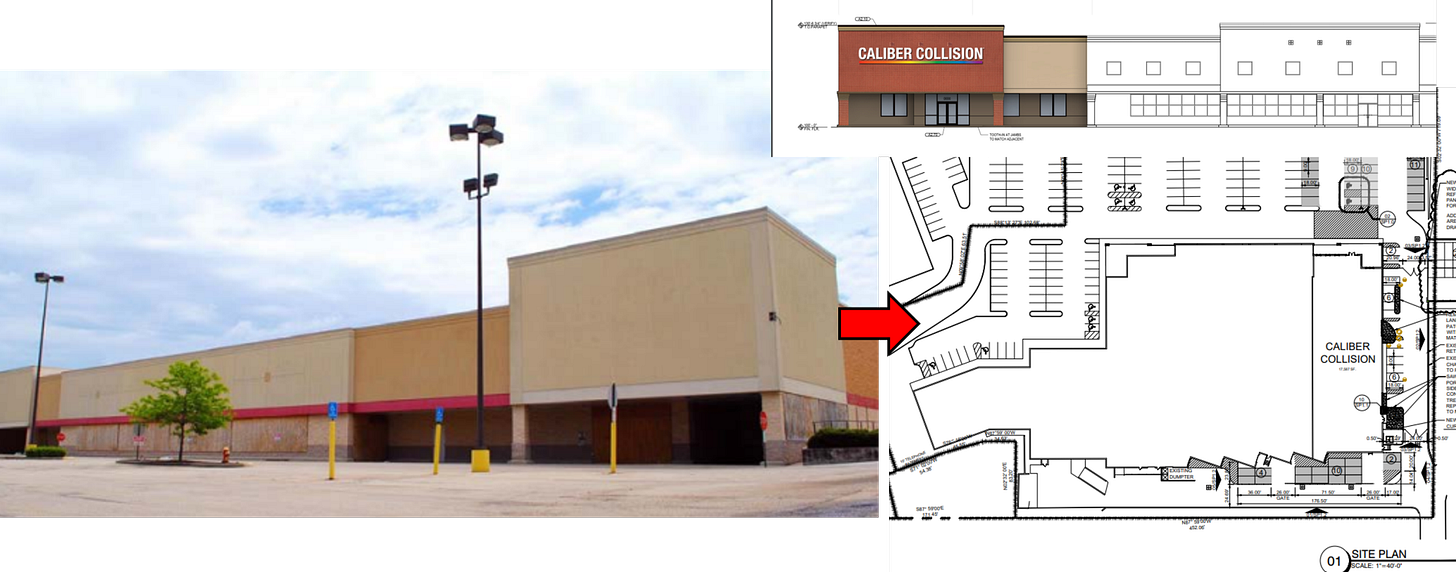Will This Former New Jersey Restaurant Be Converted Into A Collision Center?
Branning Collision Centers, a family owned chain of body shops in New Jersey, purchased a former restaurant with plans to convert the building into a collision center
Chef Thomas Ciszak operated the American restaurant Chakra on busy Route 17 in Paramus, New Jersey for nearly two decades.
But in 2019 the restaurant closed for good.
Although it had been successful, Ciszak commented at the time that the restaurant was not necessarily the highest and best use of the real estate.
Ciszak thought that he could earn more from the sale of the restaurant building and liquor license than if continued to operate it as a restaurant.
So he closed the restaurant and put the building up for sale.
In 2023 Branning Collision Centers, a family owned, New Jersey-based owner of four auto body shops, acquired the building.
With plans to convert the former restaurant into a collision center.
Developing a collision center via adaptive reuse is becoming more and more common — by both independent operators and industry leaders.
For instance, Caliber Collision has developed auto body shops in former grocery stores, Big Box retail buildings and multi-tenant shopping centers.
Caliber is even converting a former cannabis shop in Michigan into a collision center.
To be sure there are challenges in putting a collision center use in a retail building.
For instance, when Caliber Collision was working on the conversion of a former ALDI grocery store in Bethlehem, Pennsylvania, city planners were concerned about where Caliber intended to store electric vehicles on the property and feared the potential for spontaneous combustion.
Caliber ultimately agreed to store any electric vehicles in a fenced area far away from the building.
Additionally, many shopping centers are subject to operating and easement agreements that restrict non-retail uses unless waivers are obtained from tenants or adjacent owners.
Retail tenants and area residents also often raise concerns over noise or odors emitted by automotive users at retail properties.
However with “greenfield” real estate hard to come by in many markets, Caliber Collision and its competitors will likely rely on adaptive reuse for many new sites.
After all adaptive reuse is often cheaper — and faster — than adding a new body shop via ground up construction.
It can also lead to a unique end product such as a facility with greater capacity.
Adaptive reuse can also sometimes make for an easier approval, permitting and entitlement process as communities are often highly supportive of putting vacant buildings back to a productive use.
These factors were part of Branning Collision’s pitch to the Paramus, New Jersey planning board for the planned restaurant-to-collision center adaptive reuse.
Kimberly Branning, the Principal of Branning Collision, was well prepared for her presentation to the the planners in Paramus.
She noted Branning Collision’s 25 year history, the six other collision shops that she operated in the area and the fact that center’s environmentally friendly practices.
Branning even highlighted the locally-owned chain’s community activities, including the Recycled Rides Program in which the shop donates time and materials to repair and refurbish totaled vehicles for veterans.
Importantly she also came prepared with a plan to minimize the potential impact of traffic, security, noise and odor from the building’s proposed use as a collision center including that:
All loading and parts deliveries would occur at the rear of the property and tow-ins of vehicles would occur only during business hours
Up to 13 vehicles would be stored in the building with the remainder behind the building in an area surrounded by a fence
The building would be upgraded with an interior filtration system to reduce fumes from the paint booth and mixing room
The Paramus Planning Board appeared pleased with Branning’s answer to their questions and the plan for the collision center adaptive reuse.
They approved her application in a 7-0 vote.









